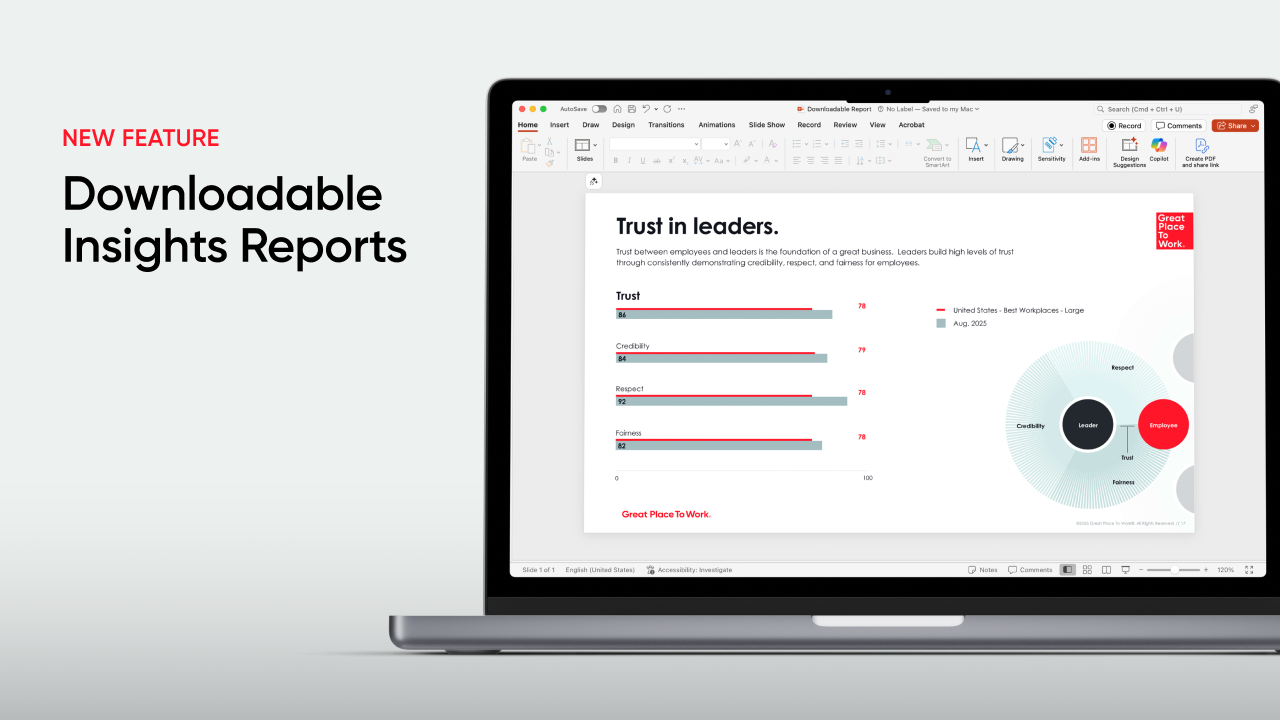Your beliefs about trust shape your actions—and your company’s culture
Imagine, as a manager, you’re faced with a dilemma that’s becoming more and more commonplace: a new employee joins your team, and after you’ve taught her about the new products your team has developed and ushered out to market, the newbie wants to tweet about them to her network.
Do you put the clamp down? Or do you give her a green light to spread her excitement? How you respond could provide some insight into your Trust Mindset™, a concept we’ve been exploring over the past few months.
By Trust Mindset, we mean your attitudes and beliefs about trust. In other words, how much do you extend trust to others, and how much gratitude do you feel when others trust you?
We think the Trust Mindset is important for a couple of reasons. For one thing, mindsets are powerful. A growing body of research shows that our underlying attitudes shape our behavior in important ways. Stanford Professor Carol Dweck’s recent book Mindset: The New Psychology of Success, for example, demonstrates the significance of “growth” and “fixed” mindsets when it comes to effort, risk-taking and overall life success.
Despite the big impact of our mindsets, we are often unaware of them. But once conscious of our mindset, we can choose to adopt a different one, and thereby reorient our actions.
That leads us to the second reason the Trust Mindset is important. At Great Place To Work® we have focused much of our attention on actions and practices that build trust, such as listening to, speaking with and developing employees.
We’ve spent less time emphasizing the role people’s beliefs about trust inform how they live out those actions—how their Trust Mindset hurts or harms efforts to create a great, high-performing culture.
Simple questions for assessing your Trust Mindset
Your Trust Mindset boils down to some simple questions:
- Do you have faith in people to do the right thing?
- Do you expect people to betray you, to disappoint you?
- Do you tend to see people as glasses half full or half empty?
For managers and leaders, the answers to those questions can make a huge difference. The glass-half-empty perspective—what we would call a Low-Trust Mindset—makes it less likely that a leader will foster a sense of respect among employees.
Even if that leader does the right things like hold town hall meetings or communicate company strategy regularly, employees will likely sniff out the fundamental mistrust and disrespect on the part of the leader. The boss comes off as insincere and negative. The “how” of the culture efforts will likely be hollow.
On the other hand, the High-Trust Mindset can accelerate efforts to create a great culture. A genuine belief that people have much to offer, can be trusted to do their best and deserve the benefit of the doubt infuse day-to-day practices with authenticity.
The glass-half-full perspective fuels goodwill and higher levels of trust. And that goodwill—that trust—in turn fuels high performance. Dr. Jim Goodnight, CEO of software company and Best Workplace SAS, sums it up well: “If you treat your employees like they make a difference, they will.”
Learn More about trust in the workplace
If you want to learn more about how to create a high-trust culture - join our email list for regular blog and research content.







